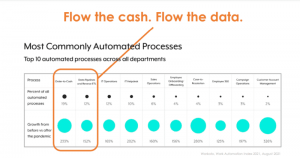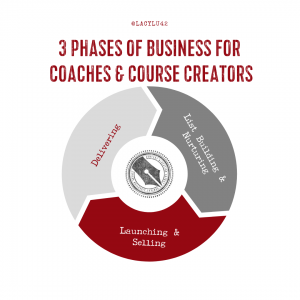Even with summer upon us, there are few signs that companies have stemmed the flow of layoffs that have rocked the corporate world for the past year. In fact, the tech industry seems to be setting new records: This year, employers have cut 200,000 jobs and counting, according to Layoffs.fyi, far outpacing the rate of layoffs in 2022.
For hiring managers and HR leaders, this tumultuous period has brought a host of challenges, chief among them retaining employees and keeping morale up through rounds of layoffs. The companies that are still hiring in this market are courting prospective employees who may have recently lost their jobs or are skittish in the face of so much uncertainty.
Melanie Naranjo, head of people at compliance training startup Ethena, sees this as a moment for companies to reevaluate how they approach hiring and retention. “Candidates just aren’t willing to take uninformed risks anymore,” she says. “They don’t want to join companies where they feel like they don’t have all the information, or they feel like maybe something is being hidden or could catch them by surprise.”
Naranjo shared with Fast Company how Ethena is navigating this period and why companies shouldn’t shy away from transparency. (This interview has been edited for clarity and space.)
“Candidates are looking for a bit of transparency and clarity”
Everyone has learned from that really big boom time, [when] everybody was just hiring a little bit frivolously. We’re being very thoughtful about, Who do we actually need today and for the foreseeable future? Just being really mindful about each role that we open and that we hire for. In the recruitment process, we are trying to be really upfront with candidates around our strategy, philosophy, and our culture around communication. Layoffs have been happening all over this industry and other industries, and candidates are looking for a bit of transparency and clarity.
Prior to all this, I think candidates were really excited and even captivated by this idea of: We’re figuring it all out, and we’re not sure what the future holds, but we know it’s going to be great things. That is not what candidates are looking for anymore. They want to see that companies and employers have a clear strategy and thought process. One of the things that we do—both internally and with candidates, as questions come up—is talk about the long-term history of Ethena. What are the things that we’ve tried that worked and didn’t work? And how is that informing our plan and strategy today? We’re not just sort of throwing things on the wall and seeing what sticks.
The other thing that people want to know about is transparency. Obviously, with candidates, there’s only a certain amount we can share of confidential company information. But internally, at our weekly all-hands [meeting], we tell people: Here are the goals that we have hit so far; here are the goals that we haven’t hit; and here’s what it’s going to take to get to that goal. I think people have a fear that the more transparent you are, the more you’ll scare employees off—that they’ll go running if there isn’t just complete toxic positivity. And we have actually found that not only is that not true, but [transparency] builds trust between us and our employees. It takes away some of that brain-power burden of panicking, and we actually have employees raise their hands to ask, “How can I be part of the solution?” So we’ve found that it really opens up this helpful dialogue between employer and employees.
For this quarter and next, we have decided to just purely focus on retention of high performers. What can happen is you divert all your resources to the underperformers, which makes sense. It’s loud, it’s a big problem, and you’re trying to fix it. So then, high performers get overlooked. High performers notoriously struggle to ask for help, which means they tend to burn out the fastest and also do things in inefficient ways—because they’re getting it done, and no one’s telling them how to do it better. High performers [also] get praised for being so easy to work with, for not bringing problems to the table.
I think often that sends the message [that] being a high performer means never asking for help. And obviously, that’s bad for so many reasons. So we’ve rolled out a training [about] how to manage stress, and it included things like knowing when to ask for help, or being able to identify that you’re stressed. And we trained managers on how to grow and really nurture high performers.
“It really all comes down to treating people like adults”
Our focus has maybe pivoted in some of the conversations that we have with candidates, just by virtue of the questions that are coming up, and also the things that we are thinking about. We really think about prioritizing the topics and areas that we know are really important to high performers, outside of money. There are four buckets that we want to make sure we communicate and highlight during the interview process, and also internally. One is growth opportunities. What does growth look like at the company? How will we help you grow? The second is sort of a two-parter: feeling valued, but then the flip side of feeling valuable. People don’t want to just be sort of a cog in the wheel. They want to know: How am I contributing to the company’s overall success? The third is, really, trust and transparency. What trust are you going to build with me [as an employer]? And then the fourth area, I would call clarity and context. What is the vision for the company? How do I know that you are not going to take me on a sinking ship?
The reason why we’re not finding this difficult is because we’ve already done all the work. We know that these are questions that our employees care about, so we’ve been answering them already; we’ve been putting together our philosophy. So, by the time a candidate asks us, we have clear answers. It’s similar to salary transparency—we were transparent before the laws [in] New York and California. When employees asked tough questions about salary bands, it wasn’t hard for us because we had the information.
I think for most employers, that’s not the case. The reality is HR teams are tiny and don’t have a ton of support. And it’s not just HR; even executive teams, especially in this economic time, are so focused on: How do we push forward the business? I think sometimes they don’t spend as much time thinking about what are the things that are scaring our employees right now. What thought processes are clear to us but haven’t been communicated to anyone else at the company? So when a candidate asks that question, especially to someone who’s not at the executive level, they don’t have a clear way of answering. Those questions become a lot harder.
Now, what is the solution? Put together a talk track. Think about the top questions and figure out how you would want to talk about those in a truthful, honest way. I think the challenge is getting buy-in and alignment from an executive team who either doesn’t have the time to do it, or quite frankly, has fears around doing it. If we admit any form of weakness—if we acknowledge that we’ve ever made a mistake before—people won’t want to join us because they just got laid off. In my opinion, it really all comes down to treating people like adults. Some employers could argue, Well, if there are limited options, eventually candidates will have to take a job. My argument to that is: Are you looking for the best of the best? Because I promise you top talent is not going to settle for vagueness or a lack of transparency.
“Trust your employees to be able to handle uncertainty and honesty”
For a long time, a lot of what we did was behind the scenes—and purposely so because so much information was confidential. I do think that’s starting to shift. I see more [HR] leaders on LinkedIn just putting the thing out, admitting when they’ve made mistakes. And I think they keep doing it because they see, “Oh, that didn’t scare people away. Actually, I got some of my best candidates from doing that because they appreciated my transparency and candor.”
Trust your employees to be able to handle uncertainty and honesty, as long as it’s given in context. Too many employers function from a place of fear. You can say the thing. And if you are feeling like, “you know what, I don’t think that we can say it,” I would question that. For example: You just don’t have enough trust, or maybe [you] haven’t equipped [your] employees to handle difficult conversations. If you can’t be honest and direct, find out why. Because usually that means there’s a thing you need to address head-on.
(4)






